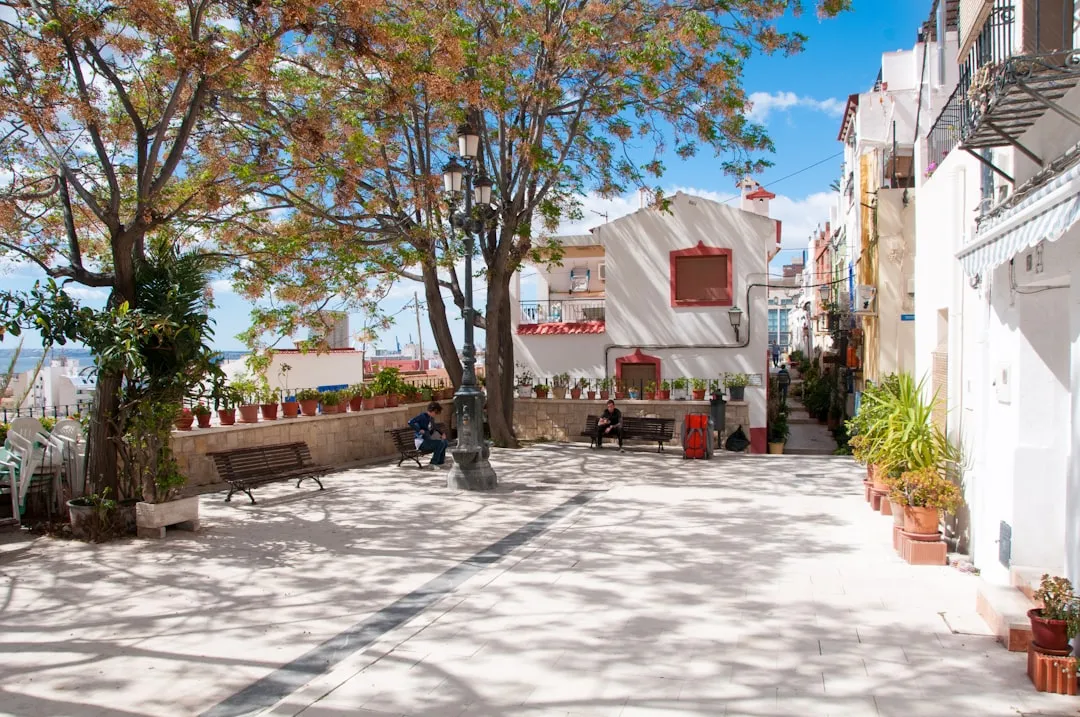How to Buy a House in Portugal: A Step-By-Step Guide
A step-by-step guide for expats on buying a house in Portugal, covering research, NIF, budget, lawyer, offer, due diligence, final contract, fees, taxes, and registration.

Image by Motoki Tonn

Fabrizio
Movyzen Co-Founder
Table of Contents
With its stunning landscapes, Mediterranean climate, and rich history, Portugal is a dream destination for many looking to purchase a home. Whether you're eyeing a holiday retreat along the Algarve coast or seeking a permanent residence in Lisbon or Porto, buying property in Portugal can be a rewarding investment.
This guide provides a step-by-step overview of the process and the essential documentation needed to buy a house in Portugal.
1. Research the Market and Choose Your Ideal Location
Portugal offers a wide range of locations and property types. Start by exploring different regions, considering factors such as climate, local amenities, transportation links, and the overall lifestyle you desire. Whether you're drawn to the beaches of the Algarve, the charm of Porto, or the historic heart of Lisbon, each area has unique appeal and real estate options.
Tip: Research property prices in your preferred area to understand the market value and avoid overpaying.
2. Obtain a Portuguese NIF (Número de Identificação Fiscal)
The NIF (Tax Identification Number) is a mandatory requirement for foreigners in Portugal who wish to engage in any financial transactions, including purchasing property. You’ll need to apply for an NIF at the local tax office or through a Citizen’s Shop (Loja do Cidadão).
Documentation Required: Passport, completed NIF application form, and proof of address. A local representative may be needed if you’re not a resident yet.
3. Set a Budget and Arrange Financing
Once you've set your budget, consider how you will finance the purchase. Portuguese banks offer mortgage options for non-residents, though terms and conditions may vary. It's also possible to get a mortgage from a bank in your home country. Consult with a financial advisor to determine the best financing option for you.
Tip: Portuguese banks often finance up to 60-70% of the property’s value for non-residents. Be prepared to cover additional costs, such as notary fees, taxes, and legal fees.
4. Hire a Lawyer Specializing in Portuguese Real Estate
It’s highly recommended to hire a lawyer, or advogado, specializing in Portuguese property transactions. They will ensure that the property is free of debts and legal encumbrances and that all legal requirements are met. Your lawyer will help you review the purchase agreement, negotiate terms, and handle the paperwork.
Why It’s Important: Property transactions in Portugal involve several legalities. Having a lawyer helps prevent unexpected complications, especially if you're not familiar with Portuguese property laws.
5. Make an Offer and Sign the Preliminary Contract (Contrato Promessa de Compra e Venda)
Once you've found the property you wish to buy, you’ll make an offer. If accepted, both parties sign a preliminary contract (Contrato Promessa de Compra e Venda), which outlines the terms of the sale. At this stage, a deposit—typically 10% of the purchase price—is paid to secure the transaction. This deposit is usually non-refundable if you decide to back out.
Key Terms in the Contract: Price, payment terms, timeline for the sale, and any conditions that must be met before closing.
6. Conduct Property Due Diligence and Title Check
Your lawyer will carry out a due diligence check on the property, ensuring it is legally registered and free from debts. This involves reviewing the Caderneta Predial (property registration) and Certidão de Registo Predial (official title deed), which confirms ownership and checks for any encumbrances or restrictions on the property.
Documents to Review: Property registration certificates, tax clearance, and land registry documents.
7. Sign the Final Purchase Contract (Escritura de Compra e Venda)
Once all due diligence is complete, the final purchase agreement, known as the Escritura de Compra e Venda, will be drafted. This contract is signed before a Portuguese notary, who verifies the identity of the parties and ensures that all legal requirements are met. The notary also registers the transaction in the official property records.
Tip: If you're not fluent in Portuguese, bring a translator, as the agreement will be in Portuguese and legally binding.
8. Pay Associated Fees and Taxes
In addition to the purchase price, several fees and taxes are involved in buying property in Portugal, including:
- Property Transfer Tax (IMT): 1-8% of the property value, depending on the purchase price and property type.
- Notary Fees: Generally between 0.1-0.5% of the property value.
- Property Registration Fees: Around 0.5-1% of the purchase price.
- Legal Fees: Typically 1-2% of the purchase price for lawyer services.
These costs can add up, so make sure to budget accordingly.
9. Register the Property in Your Name
After signing the final contract and paying the required taxes, your lawyer or notary will register the property in your name at the Conservatória do Registo Predial (Property Registry). This step finalizes the transfer of ownership and protects your rights as the new owner.
Timeframe: The registration process may take several weeks, depending on the region.
10. Set Up Utilities and Finalize Paperwork
Once you’ve finalized the property purchase, it’s time to set up utilities such as electricity, water, and gas. You’ll also need to arrange payments for property taxes and home insurance. Many utility companies will require your NIF and bank details to set up contracts.
Tip: Some utility contracts may require in-person visits or assistance from your lawyer or a local agent if you're not fluent in Portuguese.
Documentation Checklist for Buying Property in Portugal:
- Passport and NIF: Proof of identity and tax identification.
- Proof of Income and Financing: Bank statements, mortgage approval, or proof of funds.
- Preliminary Contract (Contrato Promessa de Compra e Venda): Agreement detailing the deposit and sale conditions.
- Final Purchase Agreement (Escritura de Compra e Venda): Signed before a notary.
- Property Registration Documents: Title deed and property details.
- Utility Contracts: Set up for services such as water, electricity, and internet.
Conclusion
Buying property in Portugal is an exciting opportunity to invest in one of Europe’s most desirable countries. The process may involve several steps and specific documentation, but with thorough preparation and the help of professionals, you can navigate it smoothly. By understanding the property market and adhering to local legal requirements, you'll soon be able to enjoy your new
Stop planning, just do it.
Start now your relocation with Movyzen and let us take care of the bureaucracy.


